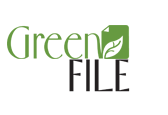Starting Out
Our "Top Picks" for agricultural, plant and water quality databases are a good place to start. Use the Tabs (left) for additional resources. Tips:
1) Mix and match your subject terms to get the resources best suited for your needs. For example: processes (erosion, contaminant flow, pollution, acidity); locations (Colorado, Great Plains); substances (pesticides, nitrates, "forever chemicals").
2) Seek the newest publications, but.... Are some of your findings "old"? Field studies, observations, and lab analyses can still be valuable.
findings "old"? Field studies, observations, and lab analyses can still be valuable.
3) Does your subject cross disciplines? Consider searching the literature of chemistry, engineering, hydrology and other subject areas.
4) Having trouble finding a specific publication? Check with a librarian--Some works (conference proceedings, government publications, etc.) can be difficult to discover.
( Winter cover crop, rawpixel.com/US Dept. Agriculture, CC0 1.0 No Copyright, https://creativecommons.org/publicdomain/zero/1.0/)
Top Picks
-
AGRICOLA (ProQuest) This link opens in a new window
 This bibliographic database, produced by the National Agricultural Library, consists of worldwide literature citations for journal articles, books, conference proceedings, theses, patents, translations, audiovisual materials, computer software, and technical reports pertaining to all aspects of agriculture and related fields.
This bibliographic database, produced by the National Agricultural Library, consists of worldwide literature citations for journal articles, books, conference proceedings, theses, patents, translations, audiovisual materials, computer software, and technical reports pertaining to all aspects of agriculture and related fields. -
Agriculture (Gale OneFile) This link opens in a new window
 Provides a comprehensive view of agriculture and related fields. The database provides access to current and authoritative content that spans the industry -- from practical aspects of farming to cutting edge scientific research in horticulture.
Provides a comprehensive view of agriculture and related fields. The database provides access to current and authoritative content that spans the industry -- from practical aspects of farming to cutting edge scientific research in horticulture. -
Agricultural & Environmental Science Collection (ProQuest) This link opens in a new window
 This resource provides full-text & A&I resources, including scholarly journals, trade and industry journals, magazines, technical reports, conference proceedings, and government publications. Subject coverage includes agriculture, botany, soil sciences, water resources, and more.
This resource provides full-text & A&I resources, including scholarly journals, trade and industry journals, magazines, technical reports, conference proceedings, and government publications. Subject coverage includes agriculture, botany, soil sciences, water resources, and more. -
GreenFILE (EBSCO) This link opens in a new window
 GreenFILE offers well-researched information covering all aspects of human impact on the environment. Its collection of scholarly, government and general-interest titles includes content on global warming, green building, pollution, sustainable agriculture, renewable energy, recycling, and more.
GreenFILE offers well-researched information covering all aspects of human impact on the environment. Its collection of scholarly, government and general-interest titles includes content on global warming, green building, pollution, sustainable agriculture, renewable energy, recycling, and more.
-
ProQuest Dissertations & Theses Global This link opens in a new window
 PQDT Global is a comprehensive collection of dissertations and theses from around the world, offering millions of works from thousands of universities. Each year hundreds of thousands of works are added. Full-text coverage spans from 1743 to the present, with citation coverage dating back to 1637.
PQDT Global is a comprehensive collection of dissertations and theses from around the world, offering millions of works from thousands of universities. Each year hundreds of thousands of works are added. Full-text coverage spans from 1743 to the present, with citation coverage dating back to 1637.
